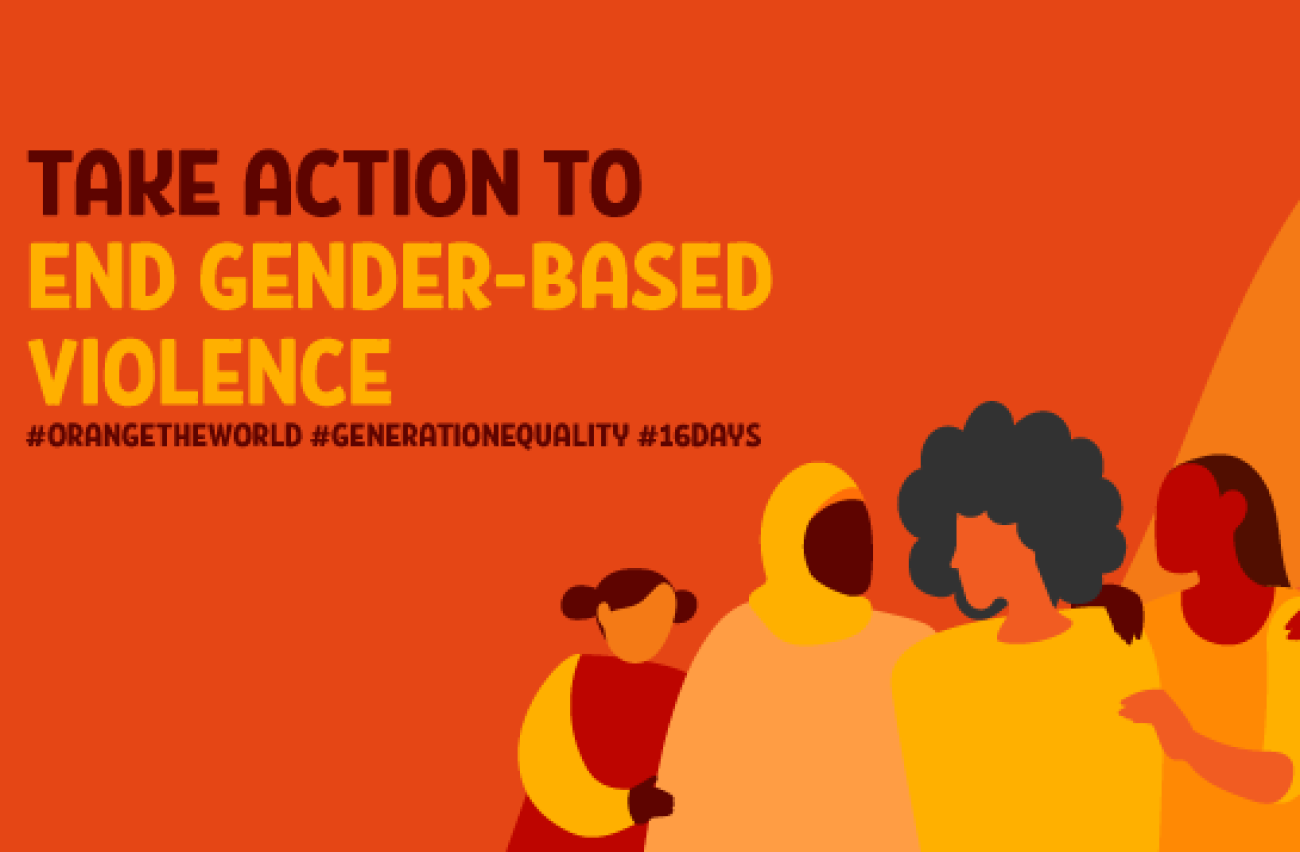16 Days of Activism against Gender-Based Violence

The world’s most common human rights violation is still violence against women and girls. The COVID-19 pandemic already had an impact on its prevalence, which is currently being exacerbated by the intertwining problems of climate change, world war, and economic instability.
In response to this situation, there is a global pushback against women’s rights. Anti-feminist movements are expanding, assaults against female human rights advocates and defenders are increasing, and the position of women’s rights in many nations’ legal systems is deteriorating. Governments are deploying force against femicide and gender-based violence protestors, regressive new laws are making it easier for those who commit domestic abuse to get away with it, and organisations that support women’s rights are being sidelined more.
Evidence suggests that a powerful and independent women’s movement is the most significant force behind the policy change, making feminism’s mobilisation in the face of anti-rights backlash a literal matter of life and death.
16 Days of Activism against Gender-Based Violence
Everyone will be encouraged to participate in these 16 Days of Activism. The voices of survivors and activists will be amplified as a result, bolstering feminist movements and supporting women’s groups. It will also strengthen survivors, lessen and stop violence against women and girls, and defend the rights of women.
An annual global campaign called the 16 Days of Activism against Gender-Based Violence begins on November 25, the International Day for the Elimination of Violence Against Women, and lasts until December 10, Human Rights Day.
Activists launched the initiative at the Women’s Global Leadership Institute’s opening in 1991. The Center for Women’s Global Leadership has continued to organise it each year. People and groups all across the world utilise it as an organising tactic to demand the prevention and elimination of violence against women and girls.
The UN Secretary-General announced the UNiTE by 2030 to End the Violence Against Women campaign in 2008 to promote this civil society movement. This campaign runs parallel with the 16 Days of Activism.
Theme 2022
The UNiTE Campaign has a different topic every year. “UNITE! Activism to stop violence against women and girls” is the theme for 2022. Everyone is encouraged to take part in the effort to put an end to violence against women and girls, to support and stand in solidarity with those fighting for their rights, and to oppose any attempts to restrict those rights.
 Say No-Uniting Since 2009
Say No-Uniting Since 2009
Say NO-UNiTE to End Violence Against Women is a social mobilisation platform that UN Women launched in 2009 to assist the system-wide UN campaign and increase public engagement.
A global petition calling on the world to give priority to eradicating violence against women received more than 5 million signatures during its initial round. The campaign generated over 5 million actions between 2009 and 2013 in collaboration with more than 900 civil society organisations worldwide.
Actions demonstrated advocacy initiatives by governments, activists, civic society, and the UN system. These varied from grassroots national awareness-raising activities to online petitions, social media campaigns, and more. Involving young people and faith-based organisations, reaching out to schools, getting governments to make specific national commitments, and more were all part of it.
COMMIT initiative
Before the 57th Session of the Commission on the Status of Women in 2012, which had as its main topic the eradication of violence against women, the COMMIT campaign was started by UN Women. This urged nations to take a stand against violence against women and girls by pledging new, significant national commitments.
By the end of 2013, 63 countries, including the European Union, had signed on to the initiative and announced particular initiatives to address and prevent violence against women and girls. These included enacting new laws or amending existing ones, ratifying international treaties, starting public awareness campaigns, offering survivors free legal representation, and safe houses, as well as supporting educational initiatives that address gender stereotypes and violence. Additionally, it has increased the proportion of women working in front-line services, peacekeeping, and law enforcement.
Ending gender-based violence in the context of COVID-19
The UN Secretary-General urged all states to include the prevention and reparation of violence against women and girls as a major component of their national pandemic response plans in 2020 to address the rise of violence against women and girls in the context of the COVID-19 pandemic. 146 Member States and Observers responded to the appeal with a statement of strong support.
To spur commitments and action to end gender-based violence in the framework of COVID-19, the Secretary-Executive General’s Committee developed a “Political engagement strategy” for the UN system.
The four primary action areas of Fund, Prevent, Respond, and Collect are what all governments are expected to commit to and do.
A global network to end violence against women and girls
UN Women creates bi-monthly action circulars that are distributed to partner groups and women’s rights activists all over the world to keep the network updated on significant developments and advocacy opportunities.
United Nations Population Fund
By 2030, the United Nations Population Fund (UNFPA) aims to stop all types of violence against women and girls as well as other detrimental behaviours.
Under the theme UNiTE! “Activism to End Violence Against Women & Girls” this year, UNFPA will emphasise digital violence and all other forms of gender-based violence (GBV) that are made possible by technology to make online environments safe. Furthermore, the ability to fuse art and activism to stop violence in both the actual and virtual worlds will be emphasised, along with breakthroughs in GBV prevention and response strategies.
Conclusion
Violence against women and girls is arguably one of the most pervasive, persistent, and severe violations of human rights in existence today. Furthermore, it is still often disregarded because of the impunity, quiet, stigma, and humiliation associated with it. Therefore, such initiatives are necessary now more than ever to raise awareness of gender-based violence and to encourage people to speak out against it.